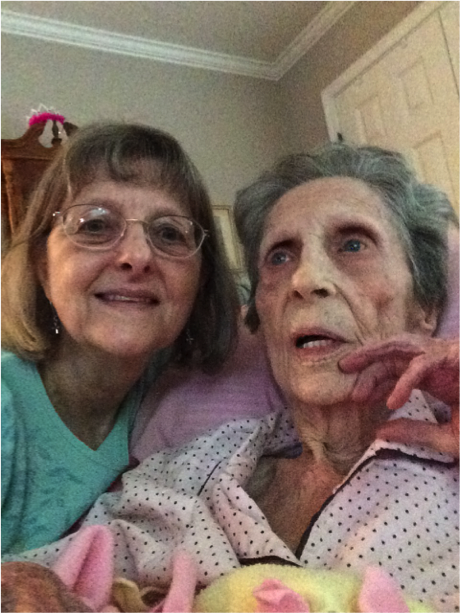Dementia, I (Don’t) Love You
In the early days, before my mother was diagnosed with dementia, I just thought she had trouble hearing. For example, I often had a sitter at the house to stay with her during the day while I was at work. One day the sitter told my mother that she loved her.
Mom said, “You have my driver’s license.”
As time went on, I realized it was her mental state, not her hearing. Her decline can be illustrated by the way she responded to the words, “I love you.”
For some reason, repeating the last word became common in her speech. When I would say, “I love you,” she would often respond with “I love you too, too.”
Then, she started responding with a variety of other phrases. She would say, “I’m glad” or “why” or “you better.”
Or if she said “I love you,” and I responded with “I love you more,” she would say “No!” or “I don’t think so” or “I love you flat out.”
One day she even said, “I like you.”
There are still some days that I come home from work, tell her I love her and ask for a kiss, and she responds with something out of the ordinary.
 One day she said she would give me a kiss when I “got myself together!”
One day she said she would give me a kiss when I “got myself together!”
Lately, though, she’s having a harder time. I asked her for a hug the other day and she told me no because “I didn’t ask her mother.”
Or I told her “I love you” and she asked, “How?”
More recently, after telling her I loved her and she didn’t respond, I asked, “Don’t you love me?”
She said, “I don’t even know who you are.”
Fortunately, that’s not every day, at least not yet. What’s most important is that we keep saying the words.

 Skip to main content
Skip to main content


